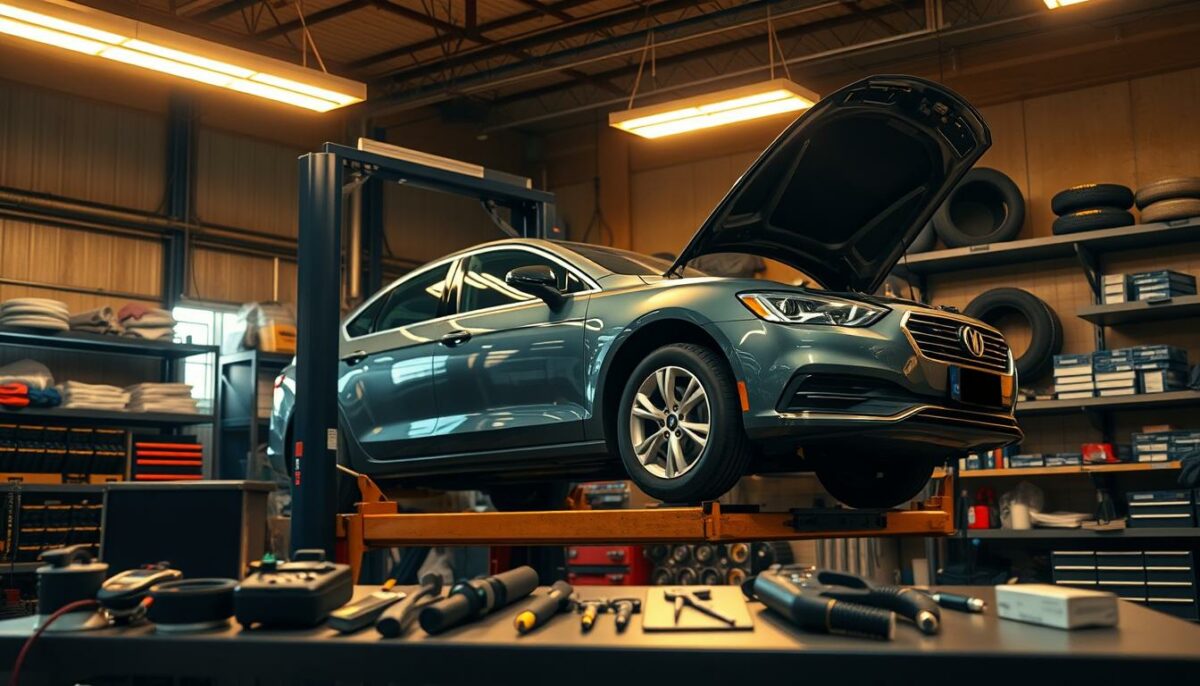When participating in an auction, many focus solely on the winning bid. However, the final price often includes more than just the bid amount. Extra fees can quickly add up, turning what seems like a great deal into a larger investment than expected.
For example, a vehicle purchased for $12,000 might end up costing $15,990 after adding fees like the buyer’s premium, registration, and transportation. These additional expenses can catch you off guard if you’re not prepared.
Our guide aims to help you navigate these costs. By understanding the full picture, you can make smarter decisions and avoid surprises. Let’s dive into the key expenses you should consider before placing your bid.
Understanding the Auction Landscape
Auction houses play a pivotal role in shaping the bidding experience. They act as the central hub where buyers and sellers come together. Their responsibilities go beyond organizing the event; they handle paperwork, set fees, and ensure a smooth process.
An auctioneer is the face of the event, guiding the bidding process and creating excitement. They ensure transparency and fairness, making the experience enjoyable for everyone involved. Their expertise helps buyers make informed decisions.
The Role of Auction Houses and Auctioneers
Auction houses set the groundwork for fees and premiums. They often charge a buyer’s premium, which is a percentage of the winning bid. This fee covers administrative costs and ensures the auctioneer’s services are compensated.
Here’s a breakdown of their key responsibilities:
| Responsibility | Details |
|---|---|
| Fee Structure | Set buyer’s premiums, registration fees, and other costs. |
| Paperwork | Handle title transfers, contracts, and legal documentation. |
| Event Management | Organize the auction, manage bids, and ensure smooth operations. |
Our Experience in the U.S. Market
We’ve participated in numerous auctions across the U.S., gaining valuable insights. Our experience shows that understanding the auction house’s role is crucial. It helps buyers anticipate additional costs and avoid surprises.
For example, we’ve seen buyers overlook the buyer’s premium, only to face unexpected expenses later. Researching the auction house’s policies beforehand can save time and money. This knowledge empowers buyers to make smarter decisions.
The U.S. market is diverse, with auction houses offering unique services. Some specialize in luxury vehicles, while others focus on budget-friendly options. Knowing the market landscape ensures you choose the right auction for your needs.
Hidden Costs at Car Auctions: What Buyers Need to Know
Bidding is just the beginning; the real costs come later. Many people focus on the final bid amount, but there are additional fees that can significantly increase the total expense. Understanding these costs is crucial to avoid overspending and making a well-informed purchase.
An Overview of Buyer Premiums and Fees
One of the most common fees is the buyer’s premium. This is a percentage added to the winning bid, often ranging from 5% to 15%. For example, a 10% buyer’s premium on a $10,000 bid adds an extra $1,000 to the total cost.
Other fees include registration charges, transaction fees, and payment processing costs. These can vary depending on the auction house and the vehicle’s location. Here’s a breakdown of typical fees:
| Fee Type | Description |
|---|---|
| Buyer’s Premium | A percentage added to the winning bid. |
| Registration Fee | Cost to register the vehicle in your name. |
| Transaction Fee | Charge for processing the purchase. |
| Payment Processing | Fee for using credit cards or other payment methods. |
Common Pitfalls and Unexpected Expenses
Many buyers overlook these fees, leading to unexpected expenses. For instance, a $12,000 bid can quickly turn into a $15,000 purchase after adding premiums and fees. Being aware of these costs helps set a realistic budget.
Another pitfall is not researching the auction house’s policies. Some charge higher fees than others, so it’s essential to compare options. As one experienced bidder noted:
“Knowing the full cost upfront saves you from financial surprises later.”
By understanding these expenses, you can make smarter decisions and avoid common mistakes. Always factor in all potential costs before placing your bid.
Recognizing and Calculating Auction Fees
Breaking down auction fees helps avoid unexpected expenses. Many buyers focus on the bid amount but overlook additional costs. Understanding these fees ensures you stay within your budget and make informed decisions.
Exploring Buyer’s Premiums and Registration Fees
One of the most common fees is the buyer’s premium. This is a percentage added to the winning bid, typically ranging from 5% to 15%. For example, a 10% premium on a $10,000 bid adds $1,000 to the total cost.
Registration fees are another expense to consider. These cover the process of transferring the vehicle’s title to your name. Depending on the state, these fees can vary widely.
- Buyer’s Premium: 5%-15% of the winning bid.
- Registration Fee: $50-$300, depending on location.
Additional Transaction and Processing Costs
Transaction fees and payment processing charges are often overlooked. These fees cover the service of processing your payment. For example, using a credit card might incur a 3% fee.
Here’s a breakdown of typical additional costs:
| Fee Type | Description |
|---|---|
| Transaction Fee | Charge for processing the purchase. |
| Payment Processing | Fee for using credit cards or other payment methods. |
As one experienced bidder noted:
“Calculating all fees upfront saves you from financial surprises later.”
By understanding the entire fee process, you can make smarter decisions. Always factor in these costs before placing your bid to ensure your budget remains intact.
Analyzing Transportation and Shipping Expenses
Deciding how to get your vehicle home is an essential part of the auction process. Whether you choose to ship it or drive it yourself, each option comes with its own set of costs and considerations. Understanding these expenses helps you make an informed decision that aligns with your budget and timeline.
Shipping vs. Driving: Evaluating Your Options
Shipping a vehicle is often the most convenient choice, especially for long distances. For example, transporting a car from California to New York can cost between $800 and $1,200. This option saves time and eliminates the need for personal travel, but it’s essential to factor in the shipping company’s reputation and delivery timeline.
On the other hand, driving the vehicle home can be a cost-effective alternative. However, you’ll need to account for fuel, lodging, and meals. For instance, a cross-country trip might cost $500-$700 in fuel alone, plus additional expenses for overnight stays. Driving also requires time and effort, so it’s best suited for those with flexible schedules.
Here’s a quick comparison of the two options:
| Option | Pros | Cons |
|---|---|---|
| Shipping | Convenient, saves time | Higher upfront cost |
| Driving | Cost-effective, immediate access | Time-consuming, additional travel expenses |
As one experienced bidder shared:
“Planning ahead ensures you choose the best transportation method for your needs.”
By evaluating these options, you can make a decision that fits your budget and ensures a smooth transition from the auto auction to your driveway. Always consider the total cost and logistics before making your choice.
Budgeting for Taxes, Registration, and Additional Expenses
Planning your budget for an auction purchase involves more than just the bid amount. Taxes, registration fees, and other expenses can significantly impact the total cost. Understanding these elements ensures you make a well-informed financial decision and avoid surprises.
Sales and Use Tax Considerations
Sales tax is a critical factor in your budget. Rates vary by state, ranging from 0% in states like Oregon to over 10% in California. For example, purchasing a vehicle for $15,000 in a state with a 7% tax rate adds $1,050 to the total cost.
Here’s a breakdown of sales tax rates in select states:
| State | Sales Tax Rate |
|---|---|
| California | 7.25% |
| Texas | 6.25% |
| Florida | 6% |
| Oregon | 0% |
Use tax may also apply if you buy a vehicle out of state. Always check local regulations to avoid unexpected costs.
Understanding Title Transfers and Annual Fees
Title transfer fees are another expense to consider. These fees cover the process of legally transferring ownership to your name. Costs typically range from $50 to $300, depending on the state.
Annual registration fees are also part of the equation. These fees ensure your vehicle remains legally registered. For example, in Illinois, the annual fee is $151, while in Colorado, it’s based on the vehicle’s weight.
Here are some tips to help you budget effectively:
- Research tax rates and fees in your state or the state where you’re purchasing the vehicle.
- Include all potential expenses in your budget, not just the bid amount.
- Set aside extra funds for unexpected costs, such as late registration penalties.
As one experienced bidder shared:
“Incorporating all fees into your budget ensures a smooth and stress-free purchase process.”
By following these insights, you can make a confident and informed decision, ensuring your auction experience is both successful and financially sound.
Preparing for Vehicle Inspections and Repair Costs
Before committing to an auction purchase, it’s crucial to evaluate the vehicle’s condition thoroughly. Skipping this step can lead to unexpected repair expenses, turning a seemingly great deal into a financial burden. We’ll guide you through the process of assessing a vehicle’s condition and estimating potential repair costs.

Why Pre-Purchase Inspections Matter
A pre-purchase inspection is your first line of defense against costly surprises. It provides a detailed assessment of the vehicle’s mechanical and structural condition. For example, an inspection might reveal issues with the engine, transmission, or brakes that aren’t immediately visible.
Here are the key benefits of scheduling an inspection:
- Identifies hidden problems that could lead to expensive repairs.
- Helps you negotiate a better price based on the vehicle’s condition.
- Provides peace of mind, ensuring you’re making a wise auto purchase.
Estimating Repair and Maintenance Expenses
Once you’ve assessed the vehicle’s condition, it’s time to estimate repair costs. Common issues like engine or transmission repairs can range from $500 to $3,000, depending on the severity. Brake repairs typically cost between $200 and $600.
Here’s a breakdown of typical repair costs:
| Repair Type | Estimated Cost |
|---|---|
| Engine Repair | $500-$3,000 |
| Transmission Repair | $1,000-$3,000 |
| Brake Repair | $200-$600 |
Insurance coverage is another factor to consider. Some policies may cover repairs during the inspection phase, reducing your out-of-pocket expenses. Always verify your coverage before proceeding.
As one experienced bidder shared:
“Taking the time to inspect and estimate repair costs saves you from financial headaches later.”
By using your knowledge and conducting thorough research, you can make an informed decision and avoid costly mistakes. Always prioritize inspections and repairs to ensure your auction purchase is a success.
Planning a Winning Bidding Strategy
A successful auction experience starts with a well-thought-out bidding strategy. Without a clear plan, it’s easy to get caught up in the excitement and overspend. We’ll guide you through the essential steps to ensure you stay within your budget and make smart decisions.
Setting a Realistic Spending Limit
Before entering an auction, determine your maximum bid. This limit should include all potential costs, such as fees and taxes. Sticking to this budget prevents overbidding and ensures you don’t compromise your financial goals.
Here’s how to set a realistic spending limit:
- Research the vehicle’s market value to avoid overpaying.
- Factor in additional expenses like buyer’s premiums and registration fees.
- Set a firm maximum bid and resist the urge to exceed it.
As one experienced bidder shared:
“Having a strict budget keeps you focused and prevents costly mistakes.”
Timing Your Bid for Maximum Impact
Timing is crucial in auctions. Bidding too early can drive up the price, while waiting too long might mean missing out. Understanding the seller’s expectations and market trends can help you time your bid perfectly.
Here are some tips for optimal timing:
- Observe the bidding patterns before placing your bid.
- Wait for the right moment to enter the competition.
- Stay calm and avoid getting caught in bidding wars.
By mastering these strategies, you can improve your chances of success. A well-planned approach not only saves money but also enhances your overall auction experience.
Maximizing Your Auction Experience with Early Arrival
Arriving early at an auction can significantly enhance your overall experience. It gives you the time needed to inspect vehicles carefully and assess their condition. This informed approach helps you make better decisions and avoid regrets later.
Early arrival also allows you to compare vehicles on-site or online. This ensures you’re getting the best value for your investment. Taking this extra step can lead to a more confident and stress-free auction experience.
Thorough Vehicle Inspections and Reassessing Options
One of the key benefits of arriving early is the opportunity for thorough inspections. You can check for any hidden issues and evaluate the vehicle’s overall condition. This step is crucial to avoid unexpected repair costs after the purchase.
Another advantage is the chance to reassess your options. If you find a better deal or a more suitable vehicle, you can adjust your strategy. This flexibility ensures you’re making the most of your time at the auction.
Here’s a quick summary of the advantages of early arrival:
| Advantage | Benefit |
|---|---|
| Thorough Inspections | Identify potential issues before bidding. |
| Compare Vehicles | Ensure you’re getting the best value. |
| Re-strategize | Adjust your plan based on new findings. |
As one experienced bidder shared:
“Arriving early gives you the upper hand. It’s the best way to ensure a smooth and successful auction experience.”
By following this guide, you can make the most of your time at the auction. Early arrival not only helps you stay informed but also ensures you’re prepared to make the best decisions.
Navigating the Title Exchange and Vehicle Retrieval Process
The final steps of an auction involve more than just paying the winning bid. Once you’ve secured your vehicle, the title exchange and retrieval process begins. This stage requires careful attention to paperwork and legalities to ensure a smooth transition of ownership.

Understanding Paperwork and Legalities
Transferring a title is a critical part of the auction process. You’ll need to provide specific documents, such as proof of insurance and a valid driver’s license. These items verify your eligibility to own and operate the vehicle.
Here’s a step-by-step guide to help you navigate this process:
- Complete the title transfer form provided by the auction house.
- Submit proof of insurance to ensure the vehicle is covered.
- Pay any outstanding fees, including registration and taxes.
- Schedule a pickup time for your vehicle, if required.
The timeline for title exchange typically ranges from one to four weeks, depending on the state and auction house policies. Delays can occur if paperwork is incomplete or if there are discrepancies in the vehicle’s records.
As one experienced bidder shared:
“Having all your documents ready in advance saves time and avoids unnecessary stress.”
By understanding these steps, you can ensure the final amount you pay accurately reflects all costs incurred. This knowledge empowers you to complete the auction process confidently and efficiently.
Wrapping Up Our Auction Insights
Understanding the full scope of auction expenses ensures a smoother purchasing journey. Throughout this guide, we’ve shared key insights to help you navigate both physical and online events. From calculating fees to planning transportation, being prepared is essential.
We’ve emphasized the importance of creating a complete budget. This includes taxes, registration, and other expenses that often go unnoticed. By planning ahead, you can avoid surprises and make confident decisions.
Whether you’re participating in a specific type of auction or exploring online options, our tips are designed to help you succeed. Use this guide as a trusted resource to navigate future events seamlessly.
We encourage you to revisit these insights whenever you plan to participate. With the right preparation, you can turn every auction experience into a rewarding one.

